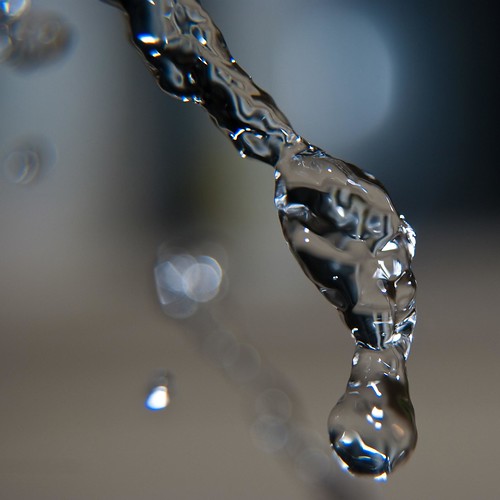Did you know humans can survive WEEKS without food, but if you go without water for even one day odds are you’re in a dire situation?

(Image by John K., some rights reserved)
Okay, now, did you know that every eight months, 10.9 million gallons of oil runs off streets and driveways and into our nations waters – equivalent to the amount lost in the Exxon Valdez spill? Or that each year, approximately 18,000 beaches are closed or posted as unhealthy due to bacterial contamination and/or sewage spills?
World Water Day was started in 1993 in order to focus on the protection and management of the world’s water. It’s championed every year by several groups, most notably by Surfrider, a clean beach initiative started by surfers.
“But wait!” you may cry. “I don’t even live anywhere near a beach!”
Well, yeah, but you still need WATER. And it all comes from and goes to the same place. Protecting our water supply is incredibly important, especially from things such as:
and more.

(Image by richardmasoner, some rights reserved)
So, if you like water, and I bet you do, you can look into ways to help. If you wanna pledge money, Surfrider is running a World Water Day special, $25 gets you a year-long membership as well as a limited edition water bottle (to help cut down on plastic water bottle usage…did you know that yearly Americans purchase 28 billion water bottles? That’s enough to fill Madison Square Garden from top to bottom with water 92 times! And many of those bottles are just thrown out and end up in landfills or in the water!).
But, if you’re not interested in donating to an organization, or just unable to, Surfrider has 15 tips to reduce water waste in your own home!
Check faucets and pipes for leaks – A small drip from a worn faucet washer can waste up to 20 gallons of water per day. Larger leaks can waste hundreds of gallons per day.
Use a broom to sweep your driveway and sidewalks – Hosing down your driveway and sidewalks is wasteful and can contribute to declines in downstream water quality. Use a broom and dustpan instead.
Take shorter showers – One way to cut down on water use is to turn off the shower after soaping up, then turn it back on to rinse. A four-minute shower uses approximately 20 to 40 gallons of water.
Check your toilets for leaks – Put a little food coloring in your toilet tank. If, without flushing, the color begins to appear in the bowl within 30 minutes, you have a leak that should be repaired immediately. Most replacement parts are inexpensive and easy to install.
Use your water meter to check for hidden water leaks – Read the house water meter before and after a two-hour period when no water is being used. If the meter does not read exactly the same, there is a leak.
Put a brick in your tank – If you are still using a traditional non-low flow toilet, you can put one or two bricks in your tank. This will help displace some of the volume and reduce the amount of water used during each flush.
Turn off the tap while you’re brushing your teeth – Turning off the water while you brush your teeth helps to save over 150 gallons of water a month.
Rinse your razor in the sink – Fill the sink with a few inches of warm water. This will rinse your razor just as well as running water, with far less waste.
Use your dishwasher and clothes washer for only full loads – Automatic dishwashers and clothes washers should be fully loaded for optimum water conservation.
Keep a pitcher of drinking water in the fridge – Running tap water to cool it off for drinking water is wasteful. Instead keep a pitcher of water in the refrigerator.
Water plants and landscaping in the morning or evening – Watering in the morning or evening reduces loss to evaporation.
Utilize climate adapted plants in your yard and landscaping – Climate adapted plants require less water. You can also look into starting an ocean friendly garden!
Avoid using the Permanent Press cycle on your washer – With clothes washers, avoid the permanent press cycle, which uses an added 5 gallons for the extra rinse.
Find a car wash! – Using a commercial car wash that recycles their water will save over 150 gallons each time you wash your vehicle and help reduce runoff.
Avoid flushing the toilet unnecessarily – Dispose of tissues, insects and other such waste in the trash rather than the toilet
So go! Save water!


